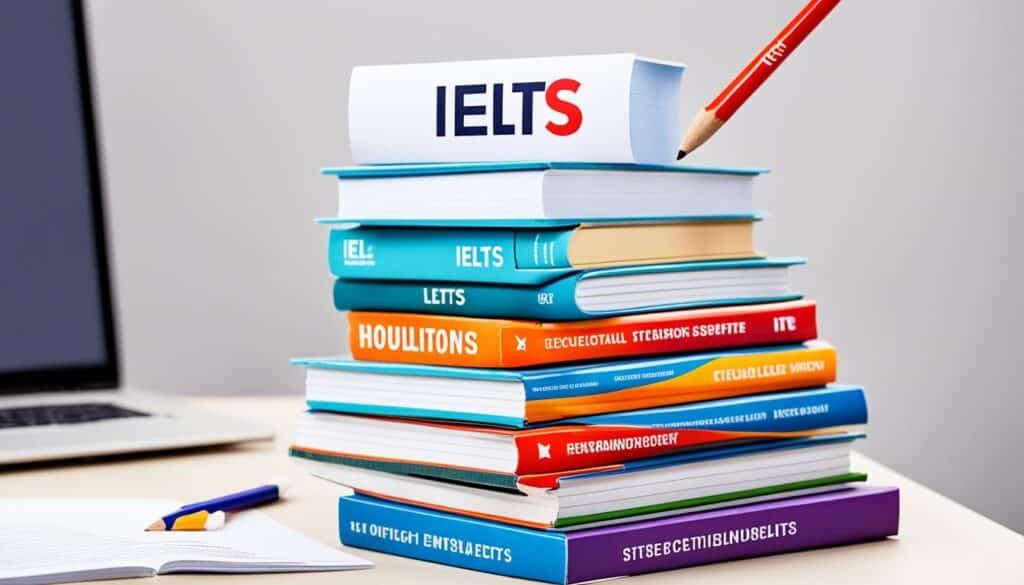The IELTS, or International English Language Testing System, is the most popular English language exam in the world right now. From universities to immigration departments, government agencies to multinational companies, over 10,000 organizations worldwide require people learning English as a second language to prove their abilities against the IELTS’ demanding criteria. It’s not an easy test, but achieving the IELTS score you need doesn’t have to be a frustrating experience. This article will provide 10 actionable ways to prepare for success on the IELTS exam, complete with links to official resources and expert tips.
Key Takeaways : IELTS Exams
- The IELTS is the most widely recognized English proficiency exam, accepted by over 10,000 organizations worldwide.
- Achieving a high IELTS score is crucial for those seeking to study, work, or immigrate to an English-speaking country.
- Proper preparation, including using official resources and practice tests, is key to success on the IELTS.
- Time management strategies are essential for completing all sections of the IELTS within the strict time limits.
- Maintaining a positive mindset and utilizing visualization techniques can boost your confidence on test day.
What is the IELTS?
The IELTS, or International English Language Testing System, is the most popular English language exam in the world, used by over 10,000 organizations worldwide to assess the English proficiency of people learning English as a second language. The exam tests all four language skills – reading, writing, listening and speaking – and is offered in both Academic and General Training versions.
Overview of the IELTS Exam
The Academic version is for those applying to study at an English-medium university, while the General Training version is for those who need English for work or immigration purposes. The exam is jointly owned by the British Council, IDP: IELTS Australia and Cambridge English Language Assessment, and is recognized by universities, immigration departments, and employers in over 140 countries.
Importance of the IELTS
Achieving a good IELTS score is crucial for those seeking to study, work or immigrate to an English-speaking country. The exam is designed to assess a candidate’s ability to use English in an academic or professional setting, and is widely accepted by universities, employers and immigration authorities worldwide as a reliable measure of English language proficiency.
Understanding the IELTS Exam Structure
The IELTS exam is composed of four key sections that assess an individual’s proficiency in the English language: Reading, Writing, Listening, and Speaking. Mastering the techniques and time management strategies for each of these sections is crucial for achieving a high IELTS score and meeting the requirements set by universities, immigration authorities, and other organizations worldwide that accept the IELTS as proof of English language proficiency.
Reading
The IELTS Reading section consists of 3 passages and 40 questions that must be completed within 60 minutes. Test-takers will need to demonstrate their ability to skim, scan, and comprehend a variety of academic and general English language texts.
Writing
The IELTS Writing section is divided into two tasks. Task 1 requires a 150-word response, while Task 2 involves a 250-word essay. Candidates have a total of 60 minutes to complete both writing tasks, showcasing their proficiency in English language composition and organization.
Listening
The IELTS Listening section features 4 sections and 40 questions that must be answered as recordings are played only once. Test-takers will need to demonstrate their ability to actively listen, comprehend, and respond to a variety of English language audio samples within a 30-minute timeframe.
Speaking
The IELTS Speaking section is a 11-14 minute one-on-one interview with an examiner. Candidates will be assessed on their ability to engage in natural conversation, express ideas, and demonstrate their overall English language proficiency through this interactive component of the exam.
By understanding the structure and format of each section of the IELTS exam, test-takers can develop targeted strategies to maximize their performance and achieve their desired IELTS band score.
Plan Your IELTS Preparation

Before starting your IELTS preparation, it’s crucial to determine your target IELTS score. The required IELTS score varies depending on the university, employer or immigration authority you’re applying to. Most organizations seek an IELTS score between 6 and 7, which corresponds to a B2 to C1 level on the CEFR scale. Knowing your current English proficiency level can help you estimate the time needed to reach your target score.
Determine Your Target Score
IELTS Advantage recommends allotting at least 6 months to improve your IELTS score by 0.5-1 band. This timeframe allows you to systematically work on enhancing your skills in all four language areas – reading, writing, listening, and speaking. Once you’ve set your target IELTS score, you can create a structured study plan to achieve your goals.
Create a Study Schedule
Developing an organized study schedule is key to your IELTS preparation. Allocate time for improving each language skill and regularly taking practice tests to familiarize yourself with the exam format and timing. Aim to complete at least one full practice test per week leading up to your exam date. This will help you work on your pacing, learn how to multitask during the Listening section, and get comfortable writing under strict time constraints. Consider asking an IELTS tutor to review your practice test performance and provide feedback, so you can identify and address any weaknesses.
Official IELTS Resources

The best place to start your IELTS preparation is with the official resources provided by the exam boards. This includes sample papers, free preparation courses and materials, official IELTS apps, and social media channels. The official IELTS sample papers give you a chance to familiarize yourself with the exam format and question types. The British Council also offers free online IELTS preparation courses and resources. The official IELTS Facebook, YouTube, and mobile apps provide tips, strategies, and updates from the exam administrators. Using these official sources ensures you have the most up-to-date and reliable information for your IELTS prep.
Sample Papers
The official IELTS sample papers are an invaluable resource for IELTS candidates. These papers allow you to become familiar with the exam format, question types, and the timing of each section. Practicing with the sample papers will help you develop strategies for effectively managing your time during the actual IELTS test.
Preparation Courses and Materials
The British Council offers a range of free online IELTS preparation courses and resources to help you improve your skills in reading, writing, listening, and speaking. These materials cover proven test-taking strategies, task-specific guidance, and practice opportunities to ensure you are fully prepared for the IELTS exam.
IELTS Official Apps and Social Media
The official IELTS Facebook, YouTube, and mobile apps provide a wealth of information and support for candidates. You can find tips and strategies from IELTS experts, updates on test dates and locations, and connect with other IELTS test-takers to share experiences and advice. Utilizing these official digital resources can give you a significant advantage in your IELTS preparation.
Unofficial IELTS Resources

While the official IELTS resources provided by the exam boards are essential for your preparation, there are also many unofficial online sources that can be incredibly helpful. From YouTube channels to blogs and podcasts, these alternative platforms offer a wealth of insights, strategies, and tips from experienced IELTS takers.
YouTube Channels
Channels like IELTS Liz and Fastrack IELTS have become go-to resources for IELTS candidates. These channels feature detailed video lessons, practice exercises, and valuable advice from IELTS experts. By watching their content, you can learn effective techniques for tackling each section of the exam, from the Reading and Listening to the Writing and Speaking components.
Blogs and Podcasts
IELTS-focused blogs and podcasts are another excellent source of preparation materials. Platforms like IELTS Podcast and All Ears English offer written and audio content that delve into writing and speaking strategies, common test-day challenges, and insider tips from successful IELTS takers.
Online Communities
The IELTS community on Reddit is a thriving online forum where test-takers share their experiences, ask questions, and offer advice to one another. Engaging with this community can provide you with unique perspectives, real-time updates on the exam, and a supportive network of fellow IELTS aspirants.
While these unofficial resources can be incredibly valuable, it’s important to remember that the IELTS exam format and content are updated regularly. Always verify any advice or techniques against the official IELTS guidelines to ensure you’re preparing with the most current and reliable information.
Practice with Mock Tests

Taking practice tests is crucial for developing the specific skills needed to succeed on the IELTS. Practice tests can help you get familiar with the time pressure, question formats, and strategies for each section of the exam. Experts recommend attempting at least one full practice test per week leading up to the exam. This will allow you to work on your pacing, learn how to multitask during the Listening section, and get comfortable writing under strict time constraints. If possible, ask an IELTS tutor to review and provide feedback on your practice test performance, so you can identify and address any weaknesses.
Time Management Strategies

Time management is crucial for success on the IELTS exam, as you’ll need to work quickly and strategically to complete all sections within the time limits. Mastering the timing and pacing techniques for each section of the test will ensure you’re fully prepared to tackle the IELTS on test day.
Reading Section
In the Reading section, you’ll need to skim and scan the passages efficiently to identify key information. This requires developing strong skimming and scanning skills through consistent practice. Timing yourself on sample reading passages and learning to quickly locate answers will be essential for completing this section within the 60-minute time frame.
Listening Section
The Listening section of the IELTS requires you to multitask, listening actively while also taking notes and answering questions. Honing your active listening abilities and note-taking strategies through mock tests will help you manage the time constraints of this 30-minute section. Familiarizing yourself with the different question formats and types of recordings is also key to improving your Listening performance.
Writing Section
The Writing section is particularly time-sensitive, requiring you to write a 150-word response in 20 minutes and a 250-word essay in 40 minutes. Developing strong time management skills, such as outlining your essays in advance and practicing efficient writing techniques, will be vital for completing both tasks within the allotted time. Regularly timing yourself on sample writing prompts can help you become more comfortable with the pacing required.
Speaking Section
In the Speaking section, you’ll have to manage your time wisely to cover all the required content within the 11-14 minute interview. Practicing common IELTS speaking prompts and tracking your responses can help you learn to pace yourself effectively. Familiarizing yourself with the format and flow of the Speaking test through mock interviews will also ensure you’re prepared to deliver your answers clearly and concisely.
Practicing these timing and pacing strategies through multiple mock tests will be essential for developing the time management skills needed to succeed on the IELTS exam. By mastering the timing requirements for each section, you can ensure you’re fully prepared to demonstrate your English proficiency on test day.
IELTS Exams

The IELTS (International English Language Testing System) exam is offered in over 140 countries worldwide and is jointly owned by the British Council, IDP: IELTS Australia and Cambridge English Language Assessment. The exam is accepted by over 11,500 organizations, including universities, employers, and immigration authorities.
There are two versions of the IELTS exam – Academic and General Training. The Academic version is for those seeking to study at an English-medium university, while the General Training version is for those who need English for work or immigration purposes. Both versions assess the four language skills – reading, writing, listening, and speaking – but the content and focus of the exam may differ slightly between the two versions.
| IELTS Academic | IELTS General Training |
|---|---|
| Designed for those applying to study at an English-medium university | Designed for those needing English for work or immigration purposes |
| Focuses on academic English used in university settings | Focuses on everyday English used in social and workplace contexts |
| Includes reading and writing tasks based on academic texts and topics | Includes reading and writing tasks based on everyday materials and situations |
| Speaking and Listening sections are the same for both versions | Speaking and Listening sections are the same for both versions |
Regardless of the version, the IELTS exam is designed to assess an individual’s English language proficiency and is recognized by universities, employers, and immigration authorities in over 140 countries around the world.
To study or work where English is required, the IELTS exam is essential. Whether taking IELTS Academic or General Training, the test assesses your command of the English language. Prepare for IELTS with free practice tests available on our website. Achieve the minimum IELTS score needed for visa and immigration purposes or professional registration.
Build Your Confidence
As you work towards achieving your target IELTS score, it’s crucial to maintain a positive mindset and build your confidence. Passing the IELTS exam is not just about your language skills – it’s also about your mental preparedness and self-belief. By cultivating a confident and optimistic attitude, you’ll be better equipped to manage the stress and pressure of the test day.
Positive Mindset
Approach your IELTS preparation with a growth mindset, believing that with consistent effort and the right strategies, you can steadily improve your English proficiency. Celebrate your progress, however small, and avoid self-criticism. Surround yourself with encouraging supporters, whether it’s family, friends, or online IELTS communities, who can provide motivation and a sympathetic ear when you face challenges.
Visualization Techniques
Visualization can be a powerful tool for boosting your confidence and performance on the IELTS exam. Take time to envision yourself calmly and successfully completing each section of the test, drawing on the strategies you’ve practiced. Visualize yourself confidently answering questions, managing your time effectively, and communicating clearly with the examiners. This mental rehearsal can help reinforce the skills and positive mindset you’ll need on test day.
Also Read: How To Clear The USPS Exams?
Conclusion
In conclusion, the IELTS exam is a globally recognized assessment that evaluates English language proficiency across listening, reading, writing, and speaking. It serves as a critical requirement for academic, professional, and immigration purposes in many English-speaking countries. Thorough preparation, including understanding the test format, practicing with sample questions, and utilizing study guides, is essential for achieving a high score. By demonstrating strong language skills through the IELTS exam, candidates can open doors to educational opportunities, career advancements, and successful immigration outcomes, solidifying their place in an increasingly interconnected world.
FAQs
Q: What is IELTS and why is it important?
A: IELTS, the International English Language Testing System, is a standardized test recognized worldwide for assessing the English language proficiency of non-native English speakers. It is essential for those planning to study, work, or immigrate to English-speaking countries.
Q: How is the IELTS score calculated?
A: The IELTS score is calculated based on your performance in the four sections of the test – Listening, Reading, Writing, and Speaking. Each section is scored on a scale from 0 to 9, and the final score is the average of these four scores.
Q: Can I use the same IELTS score for immigration purposes?
A: Yes, many countries accept IELTS scores for immigration purposes. However, the required minimum score may vary depending on the country and the type of visa you are applying for. It is recommended to check the specific immigration requirements of the country you are interested in.
Q: How can I prepare for the IELTS test?
A: You can prepare for the IELTS test by familiarizing yourself with the test format, practicing sample questions, improving your English language skills, and taking practice tests. There are also many online resources and preparation courses available to help you prepare effectively.
Q: When can I take the IELTS test?
A: IELTS test dates are available throughout the year at various test centers worldwide. You can check the official IELTS website to find the nearest test center and available test dates that suit your schedule.
Q: What is the difference between IELTS Academic and IELTS General Training?
A: IELTS Academic is suitable for those applying for higher education or professional registration, while IELTS General Training is for those seeking immigration or work experience in an English-speaking environment. The Speaking and Listening tests are the same for both, but the Reading and Writing tests are different.
Q: How soon can I get my IELTS results?
A: You can typically receive your IELTS results online 13 days after taking the test. The Test Report Form will be available for download, and a hard copy will be sent to you by mail. It is important to check the specific result release dates with your test center.
Source Links
- https://preply.com/en/blog/preparation-for-ielts/
- https://ielts.idp.com/uae/about/news-and-articles/article-dont-overthink-during-your-ielts-test
- https://leapscholar.com/blog/how-to-crack-ielts-in-15-days/





